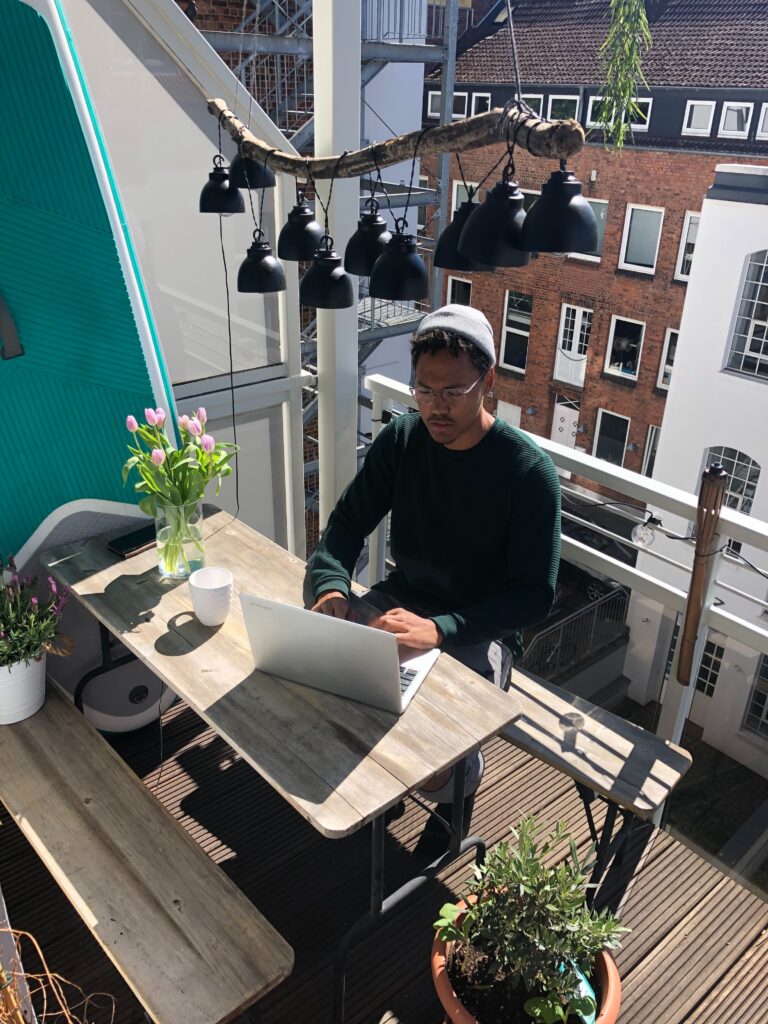OVER a quarter of work from home Brits admit that they’re less productive when working away from the office, according to new research.
That includes one in six who admitted to being more productive when they were working from home during the pandemic, however, now they’re used to hybrid working they’re less productive when working from home.
That’s according to new research from Vita Group’s ‘Future Living Report’, a major study into behavioural trends changing the way the nation lives.
The extensive fieldwork was conducted with over 8,000 Brits covering a host of topics including the rise of pets in the home, the cost of living crisis, energy saving and hybrid working, for which over 1,000 subjects who actively hybrid work completed.

And whilst the majority of the nation feel there are huge benefits to working from home – for some, distractions, a lack of connection to their colleagues, and their home’s work set up is making their productivity wane.
Of those who felt they were less productive, almost half said there are too many distractions at home.
One in four admitted to tackling household chores, whereas they didn’t during Covid whilst one in six admitted they pretend to be busy working, even if they’re not.
For 15%, working from home is making them feel more isolated and 17% said they feel disconnected from their work colleagues.
Over a quarter of hybrid workers craved better separation from work and home life, while 16% are working around other household members and finally, one in eight feel they have lost crucial space in the home.
That’s despite 60% having made some form of adaptation to their home in-order to create a better place to work from.
A further one in eight have plans to make alterations to their home in the near future to improve their home workspace.
It means that Brits spent on average £4,303 on adapting their current homes to create a better environment to work in.
This isn’t something only homeowners did either – on average those living in private rented accommodation spent £2,714 on adapting their home for hybrid working.
For the majority, this meant redesigning a room to create more space for a desk or converting an existing room into an office.
One in twelve converted an existing outbuilding such as a summer house or a shed into a garden office, and one in twenty purchased an outbuilding to create a garden office.
Currently, almost 40% of hybrid workers consider their home too small for hybrid working.
One in ten hybrid workers spoken to have resorted to moving home in order to find a place which is more functional for their hybrid work-life and one in five are seriously considering moving home in order to find a better hybrid working environment.
Despite all of this, two fifths championed the benefits of being able to spend more time with family and friends and for a quarter, it has had a positive effect on their mental health.
Almost three quarters feel they are more productive when they work from home and almost 90% of hybrid workers generally feel positively towards working from home.
David Ancell, Chief Brand Officer for Vita Group which commissioned the Future Living Report said: “As Britain’s businesses try to tackle rising inflation and a host of global economic pressures, it needs its workforce to be firing on all cylinders.
“Hybrid working has changed the way we live and work forever, it’s something we love and have invested thousands into adapting our homes to make it work.
“It’s also packed with huge benefits which employers can see, no commuting, more family time, better mental wellbeing, but it doesn’t work for everyone.
“It’s clear that for some, productivity is down, their homes aren’t working for them, they’re feeling isolated, disconnected and need to spend more time as an integral part of the team.
“During the pandemic, people working from home felt connected through adversity, some of those motivating factors aren’t there anymore.
“So, employers need to find ways to have open and honest conversations with their colleagues, adjusting their policies for those who need more contact and stimulus whether that’s at home or in the office.
“Without this, this small group of people are going to feel more isolated and lacking clear purpose.
“The home is now expected to deliver more – having a poor home workspace, or no workspace can really affect productivity and reduce people’s ability to focus as they try to do their best from their sofa or bed.
“From functional, ergonomic desks which enjoy natural light, to quiet spaces away from other household members to take a call, for people to get the most out of working from home, they need to invest into their space.
“It’s why we continue to invest millions into adding more workspace within our amenity.
“At any given day, a building with 1,000 residents can expect to see up to and over 400 people working from home.
“So, creating as much out of apartment workspace to marry with their in-apartment space provides extra functionality, reducing work from home stress, increasing wellbeing, and productivity.”

